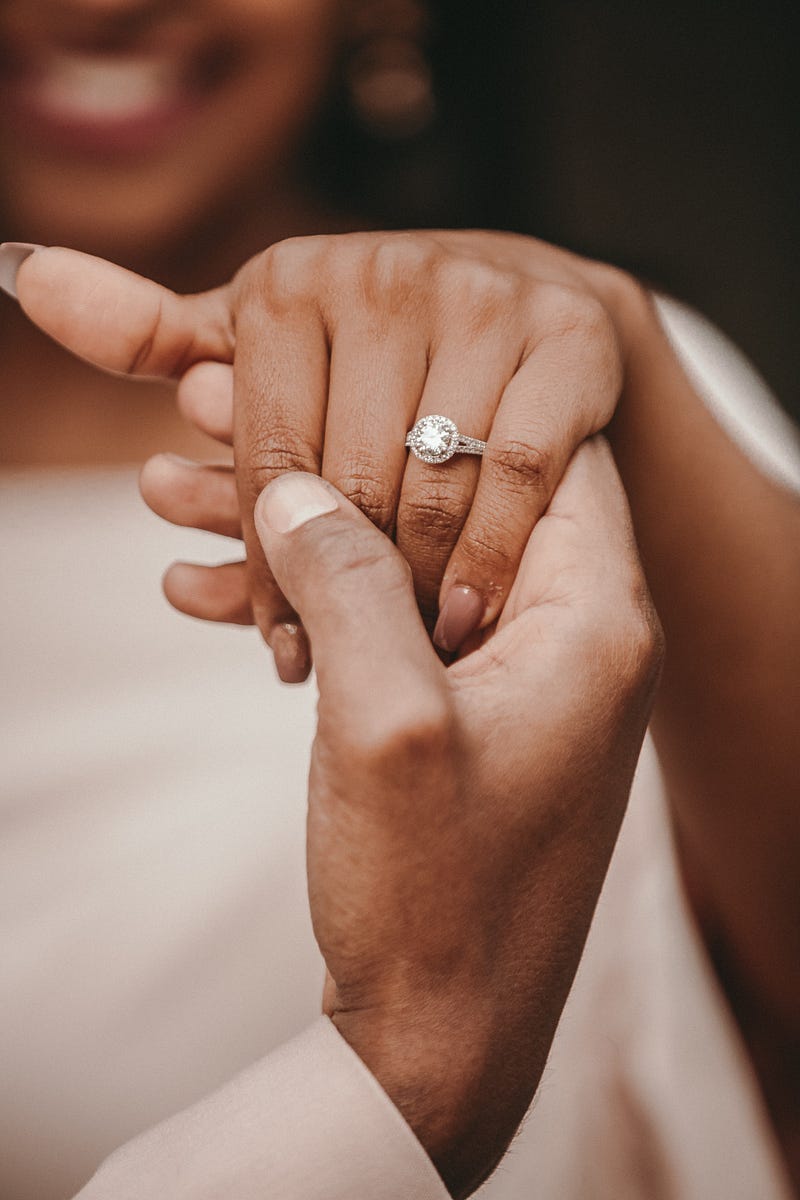First of all, Happy New Year! 2023 was ghetto as hell, so I’m glad to leave it goodbye. I’ll likely write a Year in Review as I did last 2022, but I wanted to usher in this new year with a post that’s mulled around rent-free in my mind.
Edgar Allen Hoe’s Facebook page is a wonderful discourse on celebrity news and female friendship. A few months back, I scrolled to a post that asked this question: would you loan money to a married friend? Something like that. I’ll screenshot the original post below.
The comment section fascinated me. Some women said that if a friend is in need, we should always help them if we claim that we’re friends. A few women challenged that notion with tales of how they’ve helped out friends in need, only to be betrayed and discarded later on. There’s also the crucial question: why should a presumably single woman be required to help a woman who has a full adult likely living and sleeping with her?
Before I get to the point of this post, I’ll state my actual opinion: Yes, friends — including some who were in the class of the marrieds or had more resources than me — friends who were partnered, plugged into their families, or simply more popular — have crossed and betrayed me after I’ve shared my resources when they were in distress.
After being crossed way too many times, I don’t loan money to friends and family. I have to see those as favors because I know I’ll be bitter and salty if they borrow money, and refuse to pay me back, but I see them spending in ways that I never could. So I have to view that as a gift, and then see how much could I give without it affecting the friendship.
For context, if a friend said, “Let me borrow $200,” I’d translate that to, “Let me have $200.” Then I’d ask myself …Could I afford to give this friend $200, even if we fall out afterward, even if they never return the money, would I still be cool with them? And I have to negotiate this down. A reasonable answer for me would be, “I can’t let you borrow $200, but I’ll give you $50.”

Wanted to get that out of the way before I write the rest of this article. The question about the borrowed money wasn’t the real issue. What I read in the comment section is that we have a jaundiced view of how we view friendships. That kept getting echoed in the same question that the single commentators asked: Why’s she asking for money when she’s partnered?
Then there was more finger-pointing about the morality of it all. Why are we saying that we can’t help our friends? What kinds of friends are these? Why are our friends so nosey about our domestic situation? Marriage is bliss. Do we have to be private about marriage?
And then there were the other conversations. If you’re asking to borrow money, you open yourself up to criticism.
Here’s what I mostly got from this: The Single Friend’s getting her lick back.
The Fuschia Pill Discourse
First off, I’m sick of the conversation about morality, because most people only bring it up when it comes to an obstacle of what they want. Otherwise, no one cares about fairness or morality. I noticed this conversation around morality to be odd because all women have been bullied, harassed, or abandoned based on their marital status.
Like the social media mudslinging on modern women and high-value men, most of these comments are just discourse from women who were finally frustrated and have the gumption, creativity, and let’s face it — the opportunity to object to the behavior we endured until colonial theory.

We’re not that far from when marriage was the pinnacle of success because for men it represented soft skills, and for women a social boost. We’ve done so much to boost up the nuclear family under mainstream representation (white, thin, straight, gender-affirming), that anyone who fell beneath the cracks was a loser.
If you think about it, it’s a very capitalistic approach to relationships. Marriage and a nuclear family were the average person’s version of winning the lottery because so much was wrapped up in tradition and respect.
What’s funny is that for most of the world and most of history, most households have functioned under dual incomes — otherwise, how could we eat? The version of the 1950s housewife was only available to the class of the halves for a short time, as evidenced in The Feminine Mystique.
If we didn’t get to experience the marital bliss of these supposed Boomer housewives (that drove them cray cray), then we should support them with our unpaid labor, money, services, and worship to become like them.

That’s what the 1990s and 2000s were like. As an older Millennial, we were taught to glorify a time that wasn’t available to us, met with the swift financial crisis and emotional and physical abuse shrouded as choices, or the class of the haves and the class of the half-nots.
For most of this century, marriage, a house, and a white picket fence with a dog were worshiped, and idolized like it was our nirvana — to worship husbands as though they’re God.
This sounds like a very colonial approach to our relationships — the expectations that those less fortunate should provide to sustain their reality and our fantasy.
The “I’m a Wife” club validates women’s expectations of themselves and creates a singular focus on either obtaining a husband and some kids or supporting these gifted wives with our unwavering support.
The Marriage Club height-shamed single cat ladies, and aunts who supported children, communities, churches, third spaces, etc. with their time, energy, money, and resources, only to be mocked and ridiculed by that same structure.

Notice how when there were more single women than single men, we didn’t have a crisis or uptick in violence against women who lashed out and raided men and families?
But I digress. The point is that we idolize the nuclear family. Single women tithed to married women to keep up the appearances and desire of getting married. If we supported our married friend’s marriages, we’d get the ring soon, right?
Except, it doesn’t work out that way. This is another post, but once women marry they might dump their single friends, only to return when they need something — i.e., ask for money.
Once they no longer share the same marital status they have nothing in common — or perhaps they’ve realized their friendship was based on male validation and security. Now, the married friend expects the single friend to contribute to her household and then has to hear the unfortunate — Nah, I don’t have it.
In other words, the Singles got their lick back like the women on social media are right now.
Colonize This Friendship
It’s easy to blame racism, sexism, and xenophobia on our external woes but skip how we might internalize them as well. Essentially this is a question of value.
Asking to borrow money is still asking for a favor that might jeopardize the friendship. So there should be an opportunity for that friend to say no, and have the friendship still be intact. We might miss how colonization has played into how we interrelate with each other.

We (this is everyone) want tolerance and acceptance for everything we do, while also requiring that we get to move however we want, and end relationships however we please, all under the guise of preference. It’s about preference.
Our desire for friends who look like us is a preference. Our desire for a certain race, class, or size is preference. Our desire to dissolve a friendship, only to return for convenience…well, then we need people and we’re all one with humanity, blah blah blah.
I’d never take away anyone’s preferences. There’s likely something you need to learn that’s within those preferences.
What I’m challenging is that we move through the world and our circles with more empathy or respect. Thankfully we can’t colonize people through manipulation of their fantasies or desires, because we’ve experienced too much.
We’ve seen too much. We know how friends who think they’re better than us move throughout the world. And yes, we have a right to negotiate or renegotiate a favor.


